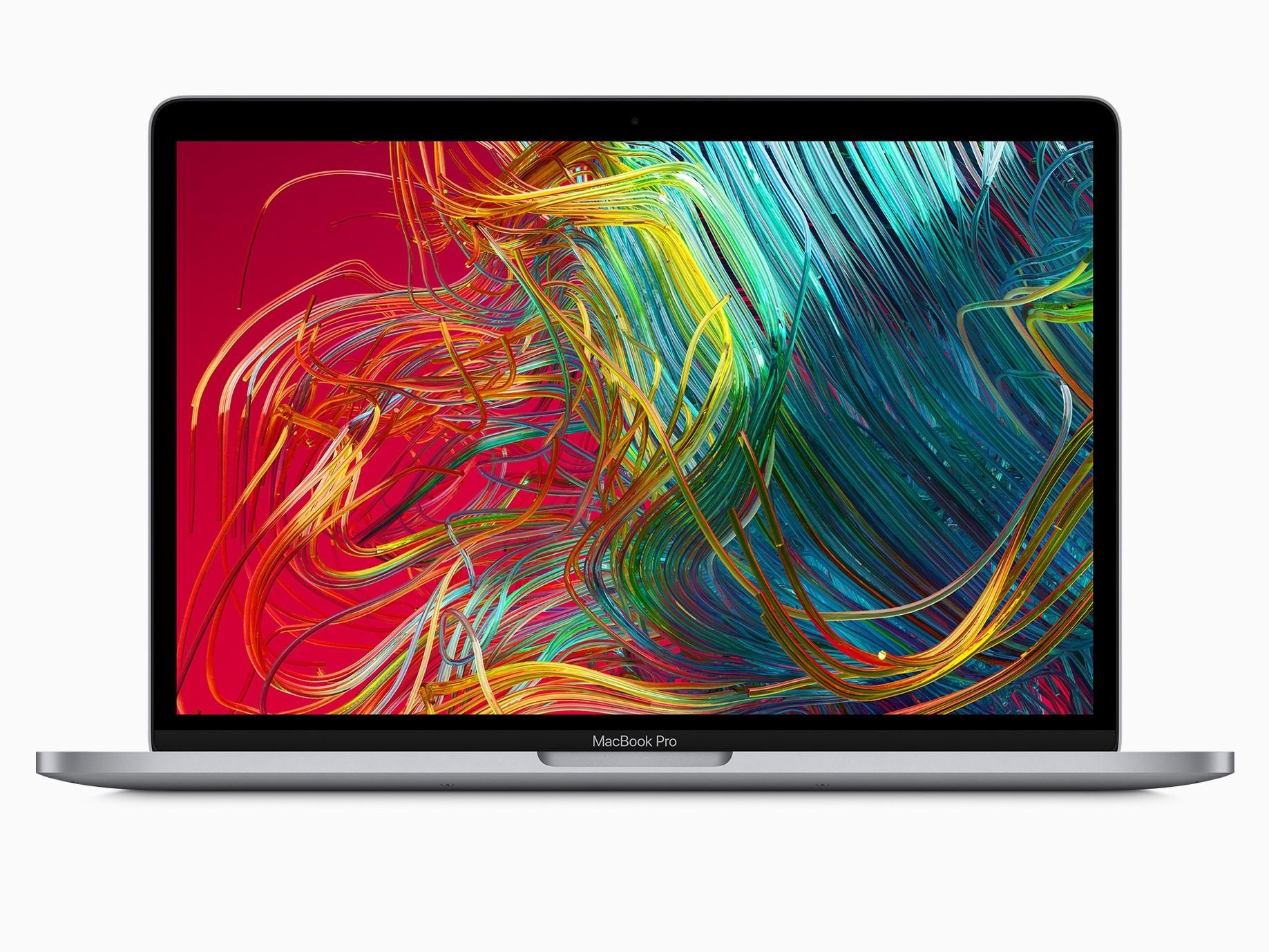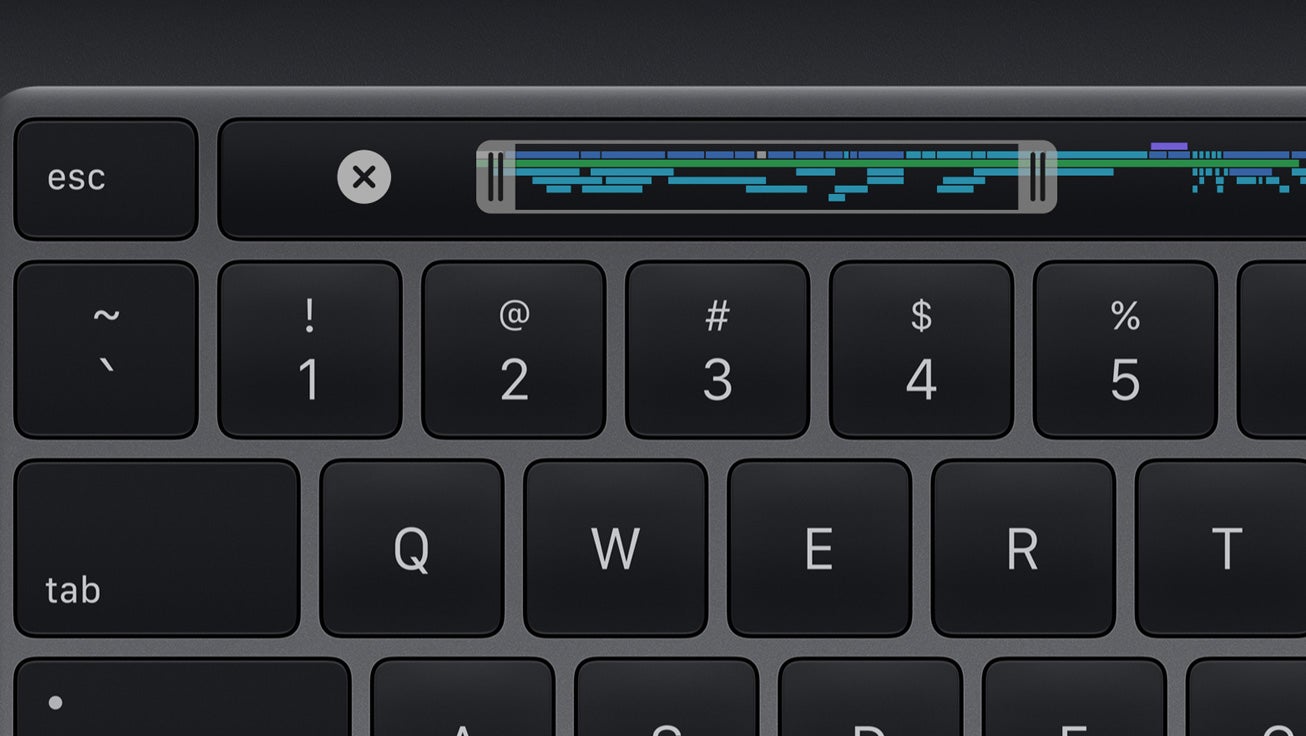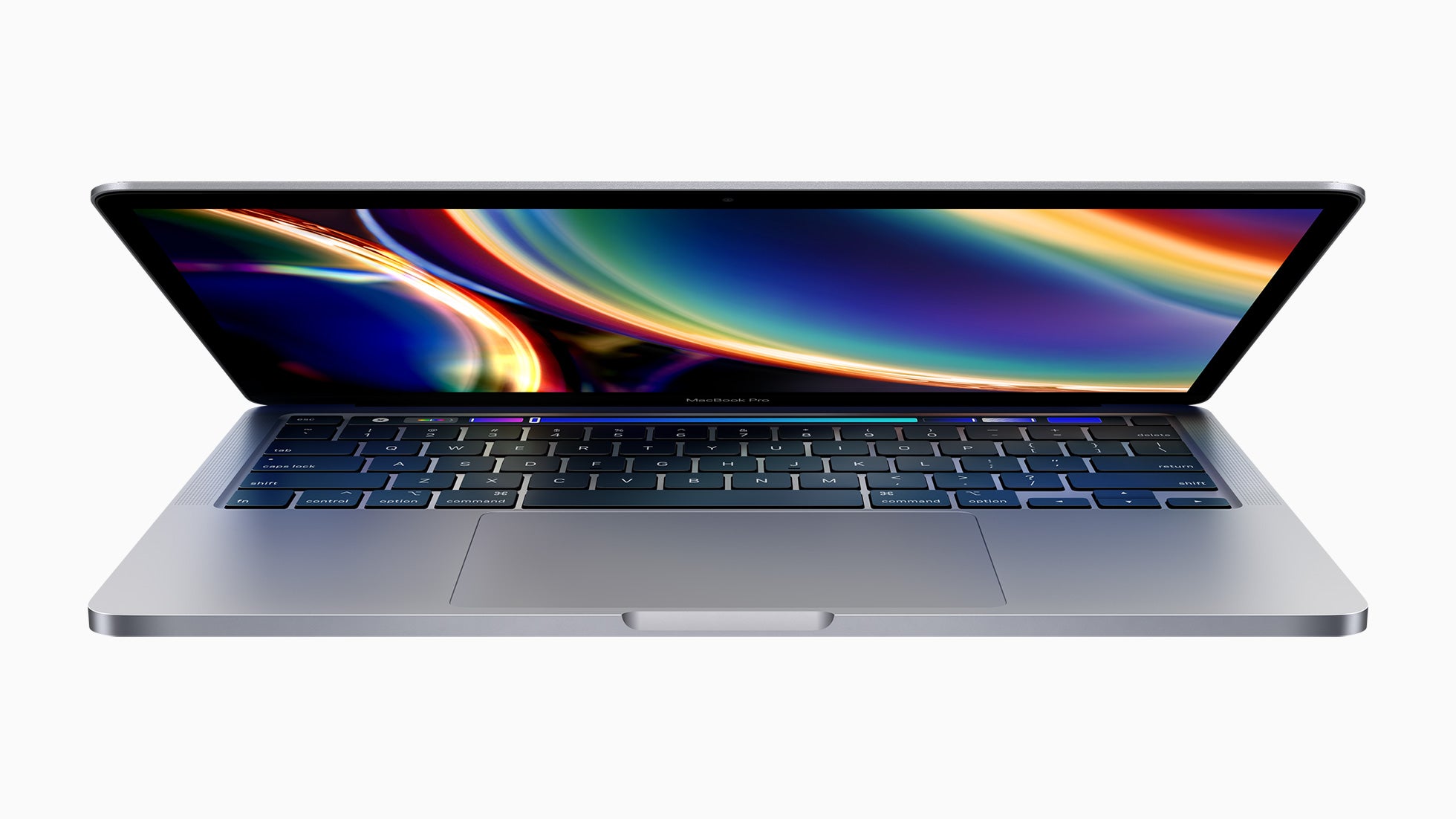MacBook Pro 13in 2020 review: Apple has 'created something extraordinary'
The keyboard alone is a compelling reason to choose the new MacBook Pro

Your support helps us to tell the story
From reproductive rights to climate change to Big Tech, The Independent is on the ground when the story is developing. Whether it's investigating the financials of Elon Musk's pro-Trump PAC or producing our latest documentary, 'The A Word', which shines a light on the American women fighting for reproductive rights, we know how important it is to parse out the facts from the messaging.
At such a critical moment in US history, we need reporters on the ground. Your donation allows us to keep sending journalists to speak to both sides of the story.
The Independent is trusted by Americans across the entire political spectrum. And unlike many other quality news outlets, we choose not to lock Americans out of our reporting and analysis with paywalls. We believe quality journalism should be available to everyone, paid for by those who can afford it.
Your support makes all the difference.The latest MacBook Pro, just released, means the entire Apple laptop range has now been refreshed with newer processors and, most importantly, the new Magic Keyboard.
Apple’s complete range of laptops offer striking design, sumptuous trackpads, excellent performance and gorgeous screens. The MacBook Air was the last to gain a Retina Display in late 2018.
But there was one key ingredient which wasn’t working quite as well as it should have been for many users: the keyboard. A few years back, Apple switched its keyboard mechanism from scissor-switch to butterfly. That previous scissor-switch keyboard was widely seen as the best QWERTY ever touched, so the butterfly had a tough act to follow. It was designed the way it was because it meant it could fit into smaller spaces, making the laptop potentially thinner.
But it proved disappointing. Keys would stick or not register and Apple had to issue extended warranties just for the keyboard. When it worked, the butterfly was effective and pleasant to use, though it didn’t have quite the key travel of the previous system, and it lacked reliability.
So, the arrival of the new scissor-switch Magic Keyboard in the 16in MacBook Pro last autumn was greeted with heightened anticipation. Greater key travel, more precision and stability of movement were promised, alongside better backlighting and a gently adjusted key layout.
And the result? An out-and-out success. I’ve been comparing the experience across the older scissor-switch, the butterfly and the new Magic Keyboard, which has now arrived on the new 13in MacBook Pro. Even the older scissor-switch, though still deeply appealing and enjoyable to use, isn’t quite as good as this new one. The new keys have almost the same travel as the classic keyboard (1mm on the new keys, against 1.2mm on the older version). But while the travel is easily enough, this keyboard adds a stability and precision which the earlier version didn’t match.
I’d say it’s the best keyboard I’ve ever used. Smooth, comfortable, with subtle shaping to the keys that lets your fingers find them more easily all making for a brilliant experience.
On its own, it’s a compelling reason to buy the new MacBook Pro. Not because Apple has fixed a problem but because it’s created something extraordinary.

There are several models of the new MacBook Pro 13in. The entry-level models have two USB-C sockets while the higher-level model has four.
The most affordable one (£1,299) has the same processor as the previous MacBook Pro 13in, meaning it’s really just a keyboard upgrade. Since the price is the same as the model it replaces, this is still a significant improvement. Actually, there’s another change which is also important, given the fact that the price is the same: the storage in the entry-level model has just doubled from 128GB to 256GB. The next model up also has the same price, same processor as before but comes with the Magic Keyboard and storage which has doubled from its previous 256GB to 512GB.
The four-port higher-end model is quite a lot more expensive but it is faster and more powerful.
Those extra ports sound negligible but they’re not. Since you can charge your MacBook Pro from any of the four USB-C Thunderbolt 3 sockets, there’s significant extra convenience to be able to plug in on either side, while still having room for three other accessories.
Then there are the MacBook Pro features which carry over from last year’s models but set Apple ahead of the rest of the industry. These are details such as the trackpad which is huge and more responsive than pretty much all the competition. There’s the useful fingerprint sensor in the power button which is secure and makes unlocking the MacBook Pro an intimate experience. It can also be used for online purchases, with the fingerprint recognition authorising payments.
Then there’s the high-resolution display that looks fantastic, rich and colourful, with neat extras like True Tone which cleverly monitors the ambient light in the room and adjusts the colour temperature onscreen so what you see is faithful to what you should be seeing.

The MacBook Pro has the Touch Bar, a touchscreen strip which replaces the function keys and changes its capabilities the instant you change apps. So, in word processing, there are touch-sensitive shortcuts to add formatting, paste something or change the text colour, all without removing your fingers from the keys. Click on to a web browser and the bar immediately changes so that you can see a thumbnail row of previous web pages which you quickly flick between. At all times, functions like muting the speakers or adjusting the brightness are also available, not to mention Siri, the voice assistant, who can be alerted by tapping the icon or simply saying, “Hey, Siri’.
But, of course, the main reason to spend £1,799 is the significant uptick in power, especially in graphics power which comes from the tenth-generation Intel chip on board, something that not even the recent 16in MacBook Pro can boast. Mind you, the graphics on the 16in MacBook Pro are still more powerful.
If you don’t use apps like video editing, for instance, or other apps with graphic-heavy demands, then the more affordable Pro may suit.
Even if you don’t need to edit video, the speed of the MacBook Pro is evident in every action. This is a fast, responsive machine that never dawdles.
Overall, the MacBook Pro 13in, in either two-port or four-port version, is likely capable enough for all your needs, but still small enough to throw into a bag easily (and the popularity of the size is one reason why Apple didn’t enlarge the screen to 14 inches, in the way the 15-inch MacBook Pro has just swelled to a 16-inch display).
Spare a thought, though, for the MacBook Air, a less expensive laptop (from £999) that does almost as much as the entry-level MacBook Pro 13in. Much of the standout tech from the Pro is also found on the Air, such as the Magic Keyboard, the Touch ID fingerprint sensor, the large trackpad, two USB-C Thunderbolt 3 ports and the 13in screen size.
The Pro display goes brighter, has wide colour instead of the standard colour on the Air. Again, these are details that Pro users need and the rest of us merely enjoy.
There’s no Touch Bar on the Air, please note. But the Air is lighter than the Pro, as its name suggests it should be, and it even has battery life a touch longer than the Pro. Though in my experience, battery life is extremely good on all these models. Overall, it makes the MacBook Air a compelling purchase as well, beating the Pro if your needs are not as heavy, though both the entry-level and higher-end MacBook Pro offer more in the way of power, for sure.
Really, if the only upgrade to the new MacBook Pro had been the new keyboard, it would make it a great purchase, since the price on both the new models is identical to the last ones.
But, for those wanting more power, the four-port MacBook Pro with tenth-generation Intel processor, is a perfect balance of portability and power
Join our commenting forum
Join thought-provoking conversations, follow other Independent readers and see their replies
Comments